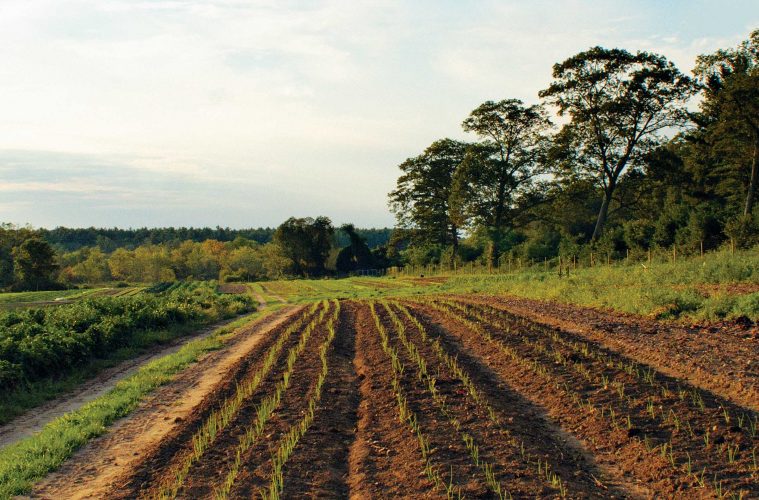In the early 1980s, a group of Army reservists were strolling through the Topsfield Fair when they saw an old farmer selling blueberries from his truck. The farmer put aside his fruit and approached the soldiers, shaking their hands and congratulating them for their service.
“Next day, I got a phone call from [their commanding officer] and he said, ‘My men stopped at the Topsfield Fair and said some crazy old hoot of a farmer thought he was General Patton and was running around shaking hands,’” says Joanne Patton, now 85.
The “old hoot” was Mrs. Patton’s late husband, Army Major General George S. Patton IV, a decorated Vietnam veteran and the son of General George S. Patton, Jr., the iconic WWII commander who marched the allied forces across Nazi-occupied Europe.
-699x1024.jpg)
Army Major General George S. Patton IV.
The Pattons’ North Shore farming legacy began in 1928, when George Patton, Jr., bought a 200-acre homestead in Hamilton. He never tilled the land, which dates back to the 1700s. Instead, he used it to hunt and planned to retire there. When a car accident killed Patton in Germany in 1945, the property became a seldom-used family retreat.
That is, until 1980, when Patton’s son retired from his own illustrious military career and moved his family to the Hamilton estate. After three decades in the Army, the younger Patton decided to devote himself to a different sort of public service.
“My husband announced to the family that this would no longer be Leisureland,” Joanne Patton recalls. “He wanted to find out what could grow here, and he wanted this to become, in his words, ‘a community asset.’ He wasn’t interested in sitting on the porch with his feet up and having people bring him cocktails.”
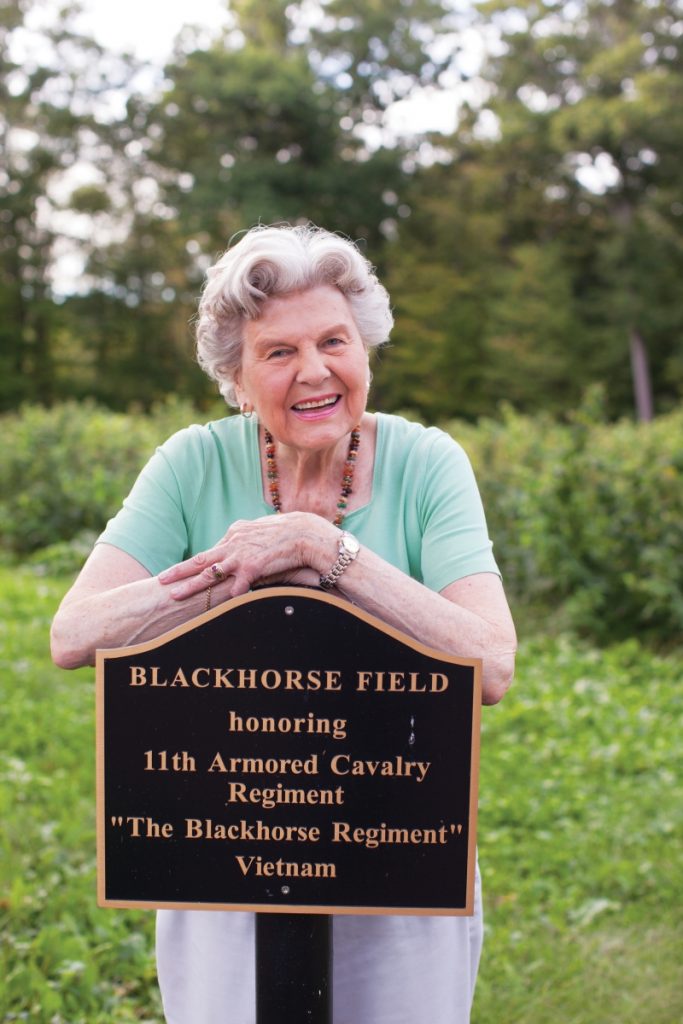
Joanne Patton still lives at the farm.
With no farming experience, the General reached out to local farmers for advice. Some doubted his grand plan could work, but they soon found out what General Patton was made of. He consulted with the U.S. Forestry Department and the commissioner of agriculture to learn the best methods for establishing a sustainable farm. He hired experienced farmhands to teach him the subtleties of New England crops. And he worked the land in the same disciplined way he had led his troops across the jungles of Vietnam.
Today, Green Meadows Farm is a long way from the battlefields of Nazi Germany and South Asia. Workers grow organic vegetables, fruits, and flowers for the farm stand. Chickens and lambs graze freely, and pigs forage the woods. The community-supported agriculture (CSA) program provides organic produce and heritage meats to 415 North Shore families.
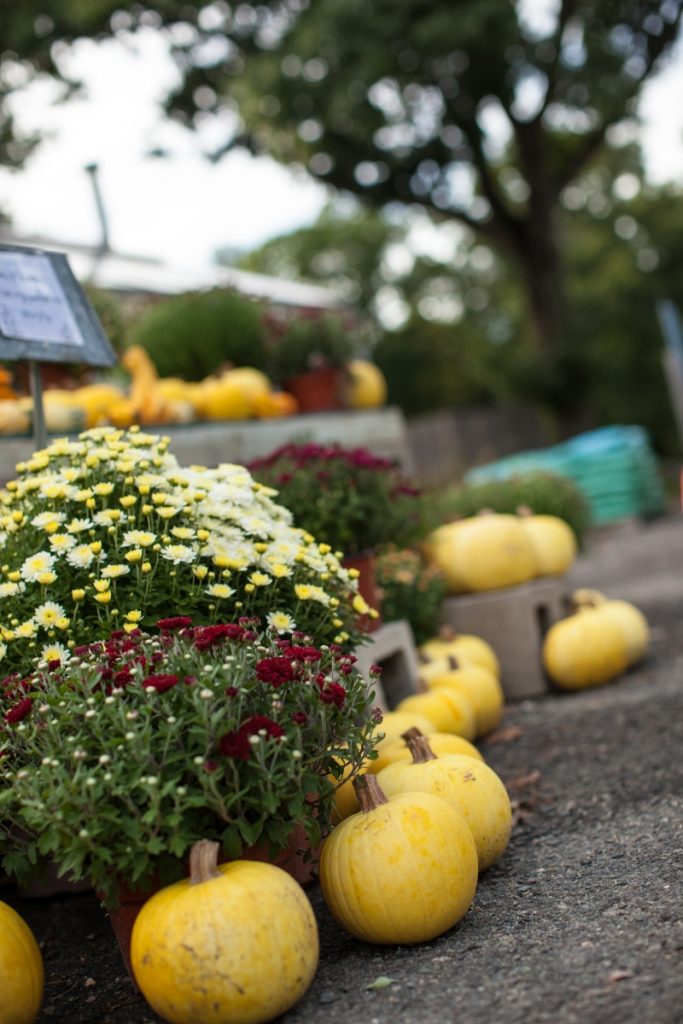
In the summer, children learn about sustainable food and experience their first taste of garden-fresh beans. And farm-to-table dinners reconnect people to the land and the importance of supporting small farms.
“People are beginning to realize that with industrial agriculture, you don’t know what pesticides they’re applying or how far it’s come to get onto your table,” says Heidi Thunberg, Green Meadows Farm’s manager. “Now, people are more aware that we can grow it all right here, and we always could. We have families going out into the fields and seeing the animals. It gives them a connection to their food, and that’s pretty basic to humanity.”
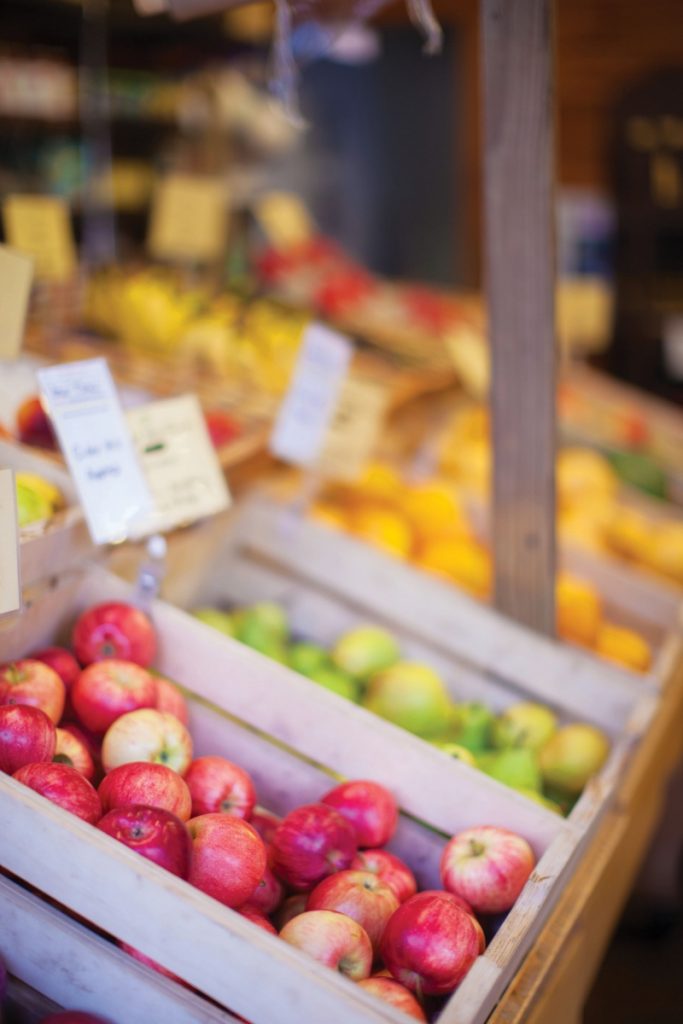
Green Meadows became certified organic more than 10 years ago, a decision that Mrs. Patton says was in keeping with her husband’s vision of providing the healthiest food possible. And although General Patton passed away in 2004, bravery and sacrifice are still deeply rooted in the soil.
Seven of the farm’s fields are named for soldiers who lost their lives in Vietnam. The first, dedicated in 1984, honors Sgt. R. J. T. Yano of the Air Cavalry, a Congressional Medal of Honor recipient who served under Patton’s command.
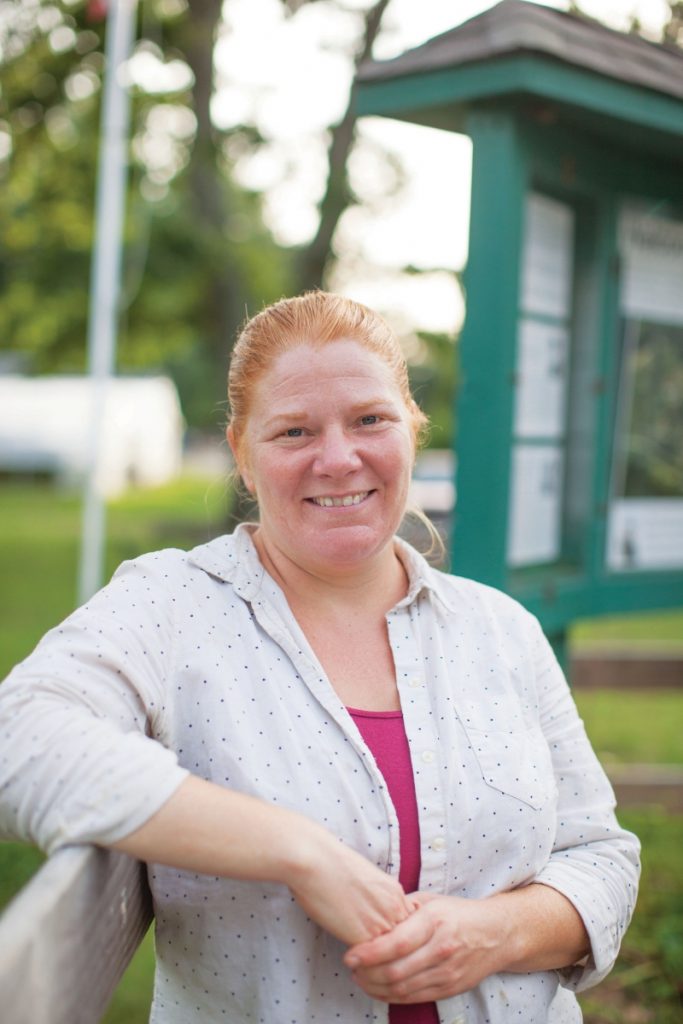
Heidi Thunberg manages the farm.
Every October, Joanne Patton welcomes veterans and volunteers from Operation Troop Support, a Danvers nonprofit that sends care packages to troops serving abroad. She treats the vets to lunch and hayrides and, in the spirit of the farm’s founder, thanks the soldiers for their service.
Mrs. Patton gifted the original homestead and its 27 acres to the town of Hamilton in 2013, although she and her family still own the farm. As Green Meadows prepared for the season’s last farm-to-table dinner this fall, she remembered her husband’s decision to plant his first crop of blueberries almost 40 years ago.
“He would still be out there, if it hadn’t been for time and health,” said Patton. “But we still say what he did: We want the farm to grow the healthiest produce that people deserve. It’s doing what my husband meant it to do.”
Green Meadows Farm’s Fall Harvest
Locals can catch the last of the 2016 harvest at the farm’s retail stand, which operates until December. Fill up on greens, Brussels sprouts, butternut and acorn squash, potatoes, carrots, turnips, rutabaga, dried peppers, dried herbs, and popcorn.
Green Meadows Farm’s Summer CSA
The farm offers a wide variety of CSA shares and seasons, including summer and fall shares of organic vegetables, fruits, flowers, and heritage meat. Summer 2017 shares are now available, and half shares start at $375 for 20 weeks of produce. For more information, head to Green Meadows Farm’s website.
Green Meadows Farm
656 Asbury St., Hamilton
978-468-2277

